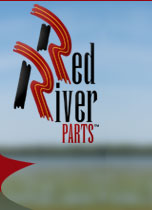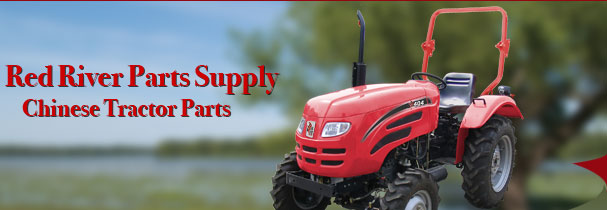






| AG Pro | ||
| Agking | ||
| Bison | ||
| Colorado | ||
| Emery Built | ||
| Farm Pro | ||
| Futian | ||
| Hardy Diesel | ||
| Lenar | ||
| Little Buddy | ||
| Nortrac | ||
| Red River | ||
| Rural King | ||
| Shire | ||
| Siromer | ||
| Task Master | ||
| Wheelox | ||
| ... and more |
| The Lenar Story |
During the late 1980’s China began modernization of its manufacturing by shifting its focus from government and military production to civilian production resulted in the “re-tooling” of a number of large manufacturing facilities. With their low labor costs and huge work force, they were in position to capture the world market over the next 20 years. One of these companies was Jiangling Motors Company Group Limited (“JMCG”) located in the city of Nanchang in Jiangxi Province. At that time JMCG was the largest vehicle and vehicle parts manufacturer in the nation. In the late 90’s they began supplying Ford Motor Company and Isuzu Motors with auto and truck parts under Joint Venture agreements. In 1997 or 1998 the national government instructed JMCG to acquire Jiangling Tractor Company Ltd. (“JTC”), also located in Nanchang, to help them with domestic production (which JTC had been performing since WWII) and to develop and produce tractors for the international market. To that end, JTC developed an excellent diesel engine utilizing an Isuzu design with an impressive performance profile. That engine, as well as the drive train, became the primary production output from the JTC plant. Most of the other tractor parts were purchased from sub-contractors. Beginning some time between 1997 and 1998, an Oregon entrepreneur (“OE”) began importing farming implements and other similar products into the U.S. Some time between 1999 and 2000, he commenced working with JTC to help them develop an export tractor tailored to the U.S. market. Together they were successful in designing and producing a shuttle shift 25 hp tractor (the LE254). He also assisted them in revamping one of their domestic tractors for the U.S. market (the LE274, 28hp, standard shift). The revamped “domestic” tractor, a 28 hp workhorse, was successfully retooled to provide a standard shift offering and was ready for export in the spring/summer of 2003. The new shuttle shift tractor was introduced in the spring of 2004. These two tractors, the Lenar – LE274 and the Lenar – LE254, were the two tractor offerings available through the OE. In the mean time the OE established a business model for marketing these tractors. The essence of that model was to appoint specific tractor/implement dealers across the U.S. as distributors for the Lenar products. That approach resulted in some “distributors” taking advantage of the distributorship pricing just to facilitate the purchase of imported tractors at wholesale pricing levels. Some entered the distributorship agreements with virtually no intention of developing a dealer network in their territory. They could sell as dealers (in competition with any dealer network they might develop), and bank substantial profits on such sales. Another weakness of this business model was that a number of the “distributors” did not have sufficient financial resources to develop and support an appropriate dealer network in the assigned territory. Thus, the market potential for that territory could never be achieved. Unfortunately both of these “weaknesses” were prevalent with most of the 10 “distributors” appointed by the OE. One of the appointed distributors, Lenar South Distribution LP (“LSD”) – the one in north Texas, was financially sound and in the late fall, early winter of 2003-2004 set out with appropriate focus on developing a dealer network. That distributor never sold any tractors as a dealership. By the end of 2004, over 600 tractors had been placed with dealers in north Texas, southern Oklahoma and western Arkansas. During that period LSD could have expanded to other dealers in the rest of Texas, Oklahoma, Arkansas and New Mexico but could not obtain sufficient product from China to warrant that expansion. Had all of the other distributors operated in a similar manner, the Lenar tractor line would have been a phenomenal success that first year. Because the LSD operation was so successful during the spring and summer of 2004, discussions were undertaken with the OE to turn the U.S. and Canadian marketing efforts over to that Texas distributor. By early December, an agreement was signed and the OE relinquished marketing rights and Lenar North America LLC (“LNA”) was born. Had the rest of the distributors been as successful as LSD, LNA and its distributors could have achieved a $50 million dollar business within 5 years. The Lenar tractors were sold with a two year drive train and a six month electrical parts and labor warranty. However, the Chinese manufacturers only provide a one year parts only warranty. The principals of the new company (LNA) realized its vulnerability to quality issues and before launching LNA in January 2005, the principals accompanied the OE to Nanchang in December 2004 to discuss quality issues with JTC. During that visit, LNA owners discovered that the JTC factory was on the verge of bankruptcy and was being purchased by Mahindra & Mahindra (of India). That purchase was concluded in May of 2005 after JTC agreed to pay the OE for cancellation of his supply agreement and reassign it to LNA. LNA had agreed to take 240 tractors in the spring and summer of 2005 and had made substantial production deposits that virtually required them to carry forward with that purchase. During the summer of 2005, LNA entered into discussions with Dongfeng Agricultural Machinery Company (“DFAM”) in order to provide a replacement for the JTC products for future imports. LNA took delivery of the 240 tractors from JTC and in short order found a significant number of the tractors to be defective. Most of the warranty problems coming from these tractors were a result of shoddy sub-contractor work. Furthermore, the parts supply from JTC was spotty at best. LNA resorted to scavenging a number of its “good” tractors and purchasing from other sources in China to supply warranty parts for the tractors already sold. Between the fall of 2005 and the end of 2007, LNA paid out over $378,000 in warranty claims. By the end of that period, all of the JTC tractors had “passed through” the two year warranty period. In contrast to these JTC tractors, the DFAM tractors simply did not have warranty problems – experiencing less than 2% warranty claims. The JTC warranty obligations essentially broke LNA’s back financial. LNA management had opted to honor its warranty obligations because ethically that was the right thing to do. Furthermore, LNA (or a successor company) had intended to carry on business with the superior DFAM tractors. The offerings from DFAM enabled LNA to offer 5 tractor models: 20hp, 25hp, 30hp, 35hp and 40hp. To that end, LNA commenced efforts to obtain funding through equity investors and venture capitalists, continued developing its international marketing activities in England (where it was able to sell over 400 tractors in three years through its UK distributor), supply agreements with several African countries and probing the potential of the South American markets through a related importer. The funding efforts were unsuccessful and in retrospect (based on what we now know of the banking crisis), that is understandable. Finally in mid 2008, due to depleted financial resources and the inability to secure funding, LNA had to shut its doors. As a result of the successful Lenar sales efforts, there are presently over 1700 Lenar Tractors in use in the U.S. and Canada. To keep these tractors running, quality parts from China are essential. Red River Parts Supply Company LLC (“RRPSC”) was formed to provide tractor parts support to these 1700 tractor owners. Parts for both the JTC and the DFAM Lenar tractors are readily available from excellent sources in China and are provided through the services of RRPSC.
|